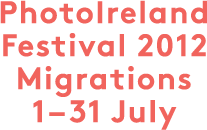In this cartoon, an Irishman and a Chinese man are devouring Uncle Sam. Ultimately, the Chinese man consumes them both and steals the Irishman’s hat.
There was a time in America when the Irish were characterized as apes, Italians as street filth, and Chinese as parasitic locusts. Today, these groups are key tiles in the American mosaic, but their arrival was initially met with fear and opposition. Newspapers and magazine cartoons from the turn of the 20th century illustrate these sentiments.
Many of these images were originally published in humor magazines such as Puck and The Wasp. Though modern-day viewers might see them as racist propaganda, perhaps in their time they functioned more as political satire. Think of Stephen Colbert and his hyperbolic, politically incorrect Chinese caricature, Ching Chong Ding Dong. One hundred years from now, people watching Colbert Report archives might misinterpret the comedy as something more sinister.
But it is safe to say there was a more sinister attitude toward immigrants in the country at the turn of the 20th century. The Chinese Exclusion Act of 1882 made it government policy to restrict an ethnic group’s ability to enter the country. In 1896, an Atlantic author called immigrants”a hopeless burden” that would dilute the industriousness of the nation. In 1917, the Immigration Act barred a whole range of individuals – including the illiterate, the “feeble minded,” and homosexuals – from entering the country. Many of the images in this gallery echo these fears and portray immigrants, particularly the Chinese and the Irish, as parasites devouring what Americans hold dear.








